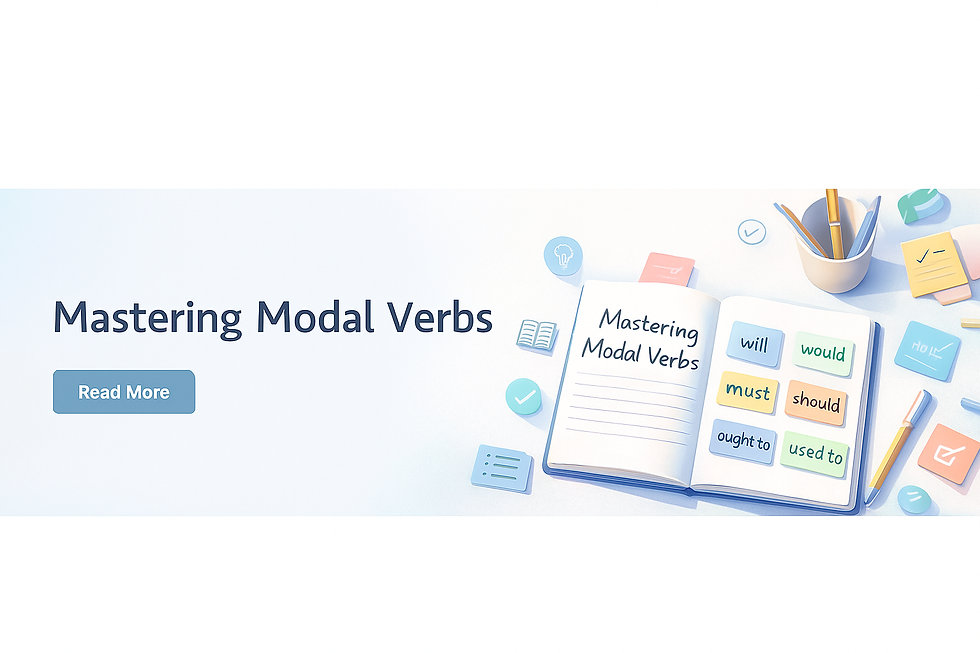Mastering Modal Verbs: will, would, used to, must, should, ought
- PAUL MASIH
- Nov 24, 2025
- 1 min read
Understanding modal verbs is one of the most important steps in mastering English grammar. These small but powerful words—will, would, must, should, ought to, used to, and more—help us express obligation, advice, habits, certainty, and possibilities. Yet many students mix them up because each modal carries a different shade of meaning. This blog breaks down modal verbs in a simple, enjoyable way using fresh examples and real-life situations. Whether you’re preparing for exams or strengthening your communication skills, this guide will help you use modal verbs confidently and correctly. Let’s make English grammar easy, logical, and fun to learn!










Comments